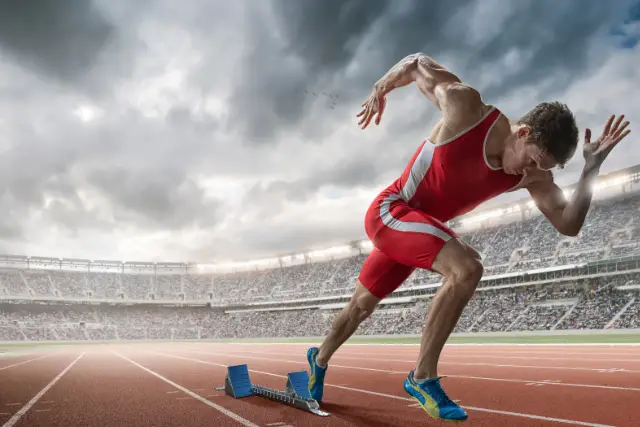I am a sports performance specialist. I help athletes, coaches, and parents. My company, Expert Sport Insides, designs training programs for competitive athletes. These programs enhance athletic skills to improve performance and reduce injury risk. Our programs improve:
- Body composition
- Strength
- Endurance
- Speed
They also boost:
- Agility
- Coordination
- Balance
- Power
- And more
We also consider:
- The athlete’s age
- Gender
- Sport
- Health
- Skill level
Every athlete has a journey, and we tailor our approach accordingly.
To prepare top athletes, I was inspired by Dr. Tudor O. Bompa. He is a world-renowned expert on Periodization. Based on the content of these writings, I have organized training into five principles, which serve as a guide to achieving high performance.
These principles encompass physical, technical, tactical, theoretical, and psychological elements. The paper demonstrates the interrelation of all five principles and underscores the importance of a systematic approach.
Random training acts at random times will only produce random results at best. Athletes trust our ability to guide them in the right direction. Usually, they need more options. They deserve a chance to thrive in our training, not survive it.
It All Starts Here
I’ve spent my career stressing the need for a strong base in sports. Physicality is the base upon which all other skills are built. It is still being determined how often athletes invest in skills training. They may not develop the physical abilities to support those skills.
For example, why pay for hitting lessons if a volleyball player can’t jump? Or, if a soccer player lacks endurance for a skills camp?
Youth sports often overlook a key step for success. They need to ensure athletes are physically capable of jumping into skill development. Coaches naturally choose the strongest, fastest athletes, highlighting the importance of physical training. Without it, young athletes’ weaknesses are exposed rather than their strengths.
Dr. Bompa says athletes need 8 to 12 years of training to peak. Every month, I see new athletes. This is the first time they have had this training, and they’ve yet to reach their full potential. At a young age, the focus should be on building a strong, capable body. Sports should come second.
After creating that base, the journey to exceptional performance can commence.
It’s All About Technique
Once we have fit athletes, we teach them their sport. Then, we begin the mastery process. Athletes now train their bodies to perform specific actions in their sport. These actions will be needed in competition. Athletes will train these skills to create an economy in every motion.
Highly cheap athletes can slow the game in their minds. They expend less energy in devising and replicating game-winning maneuvers. The idea here is to make it look easy. We’ve all seen athletes who seem unstoppable.
They make it look easy. These athletes are so well-trained that their sports actions are second nature. It results from being able to put in the hours of work needed to master a skill.
Athletes should concentrate their technical training on their areas of greatest need with strategic planning. This is the first step in implementing tactics into training, which leads to the following training principle.
While repetitive technical practice is critical, it is essential to introduce a tactical focus to ensure its effectiveness in real game or match situations.
Tactics and Strategy
As I said before, I see many well-intentioned athletes. They are wasting their time trying to improve their skills.
Another essential element of the plan is allocating time to enhance areas of weakness. I typically see athletes working on things they are already good at. Athletes must recognize their weaknesses, which is necessary for further improvement and maintenance.
In top-tier competitions, weaknesses are inevitably revealed. It will be a part of the opponent’s strategy to find and exploit that weakness to their advantage. Highly skilled individuals concentrate on being versatile and ready for any situation.
These trained specimens know the theory of practice and competition. Their technical and tactical training helped them understand it.
Understanding the Game
I’ve always told my athletes and clients that a coach or trainer with no philosophy is dangerous. Our facility has an open communication policy. Athletes and parents are welcome to inquire about our strategies and philosophy.
Coaches and trainers with outdated attitudes who reply with “Because I said so!” should not be considered competent professionals. The reality is that most of them are not technically professionals.
It’s All in Your Hands
I have mixed feelings about the psychological side of sports. If athletes are adequately trained, their mental strength naturally develops. Overcoming challenges at each stage of training builds a strong mental edge. Yet, if athletes take shortcuts, their mental resilience weakens.
The aspirations of parents, coaches, and teammates can blur an athlete’s concentration. Our society would enjoy being more “Athlete-Centered” than “Sports-Centered.” Coaches should teach how to compete. Parents should support. Trainers should get athletes in shape.
If everyone works together for the athlete, they will succeed. Sports should help athletes grow in sports and life. They should be positive, fun experiences.
Final Thoughts
A systematic method is essential to achieve and sustain high-level athletic performance. Yes, some athletes are so gifted they can overcome tough competition. The athletes mentioned are not the norm and should be more related to my topic. I intend to create a roadmap to success that creates value for the majority.
Our model not only builds robust athletes. It also boosts their mental confidence. This grants them a competitive advantage. We view each principle as a path to achieving success.
Our athletes will train to build the skills needed for their sport. They will learn to execute each exercise to maximize its benefits. Their routines will be planned to ensure the best results for their needs. We will discuss our program’s theory. It will teach athletes about conditioning and encourage them to follow it.
Our athletes will learn what it takes to be elite through this process. They will gain the mental strength to demand excellence from their abilities. A well-trained athlete is a formidable presence to contend with.



